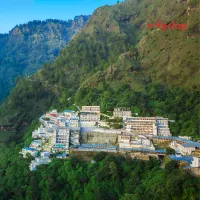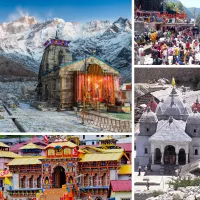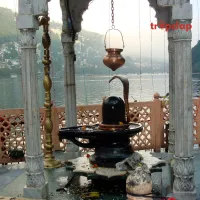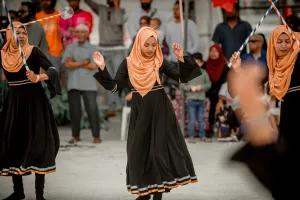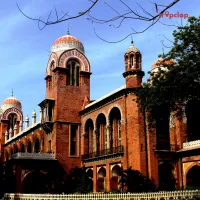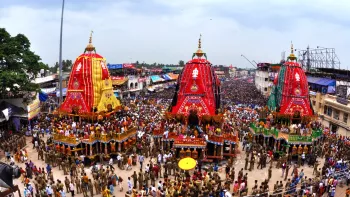Top 10 things to do in Firozabad
Get a detail idea about famous things to do in Firozabad in your trip to Firozabad in the state of Uttar Pradesh.
Views : 1358

A quintessential city in the state of Uttar Pradesh, Firozabad is the administrative headquarters of Firozabad District, located on the banks of the Yamuna River. Firozabad is well known for its glass industry and for its production of glass bangles. The city was founded in 1351 by Firoz Shah Tughlaq, a Sultan of the Tughlaq dynasty, and its name was derived from the name of the Sultan. One of the important and interesting facts is that the city was founded in 1559 by Mughal Emperor Akbar.
The city is geographically close to Agra, which is known for its historical monuments. The city is also known for its temples, including the Bara Imam Sthan, which is dedicated to the 12th-century Sufi saint Bara Imam. Well, without further ado, below are some of the top attractions of Firozabad that will keep you on your toes!
Table of Content
- Pay your homage at the Mahaveer Digambar Jain Temple
- Visit the Chandravar Gate
- Observe the minute details of the Marsalganj Jain Temple
- Mediate at the Sofi Sahab Mazar
- Pay your homage at the Vaishno Devi Temple
- Have a relaxing evening by the Raja Ka Taal
- Learn about the Tomb of Firoz Shah
- Praise the architecture of Shahi Masjid
- Witness the famous Firozabad Fort
- Learn about the history of Kotla Fort
Pay your homage at the Mahaveer Digambar Jain Temple
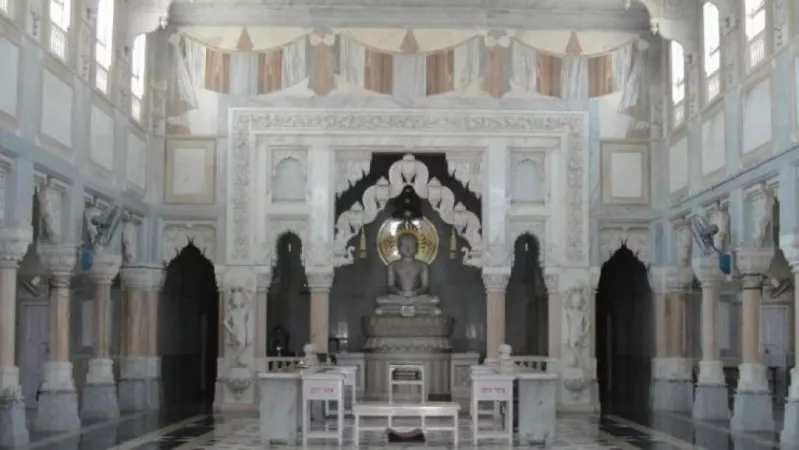 View Gallery - 11
View Gallery - 11 Mahaveer Digambar Jain Temple is located in Firozabad, built in the year 1864 by Seth Laxmi Chand Jain. The temple is dedicated to Mahaveer, the 24th Tirthankara of Jainism and is a significant religious site for Jains. It is one of the few temples in India where the statues of Mahaveer and other saints are completely unclothed.
The temple is built in the Digambar style of architecture and is the only temple of its kind in Uttar Pradesh. The temple is built from red sandstone and is decorated with carvings of Jain deities, with a beautiful structure made of white marble. The temple complex includes a large temple building, a large hall, a small temple, and a large courtyard. The temple is open from 4:00 a.m. to 10:00 p.m and attracts devotees from all over the country.
Visit the Chandravar Gate
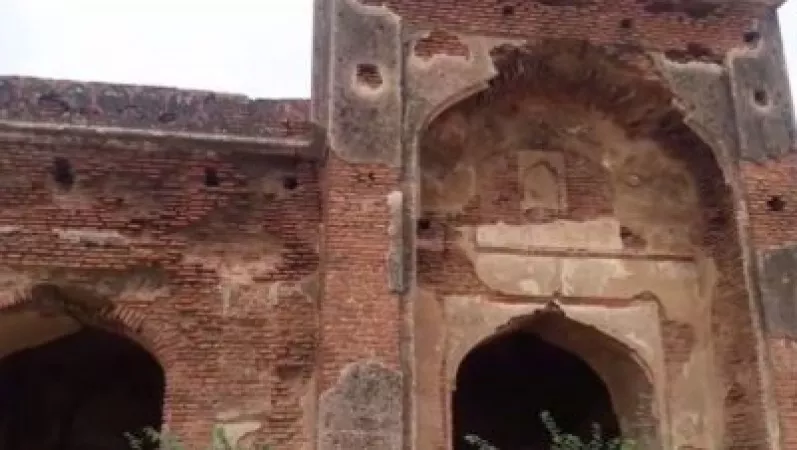 View Gallery - 11
View Gallery - 11 Chandravar Gate is one of the gates of the city of Firozabad, located on the Delhi-Agra highway, and is named after the Chandravar dynasty, which ruled the area in the 8th century.
The gate is a three-story structure, with a pillared arcade on the ground floor and a balcony on the first floor. The gate is flanked by two bastions and topped by a dome. The gate was built in the Mughal style, with influences from the Hindu and Rajput styles. Moreover, it is built in sandstone and is decorated with a band of carved animals and geometric patterns that make it even more noticeable. Furthermore, the gate has a number of ornate carvings, including depictions of the Mughal Emperor Shah Jahan and his wife, Mumtaz Mahal.
Nonetheless, the gate is currently in a state of disrepair and is in need of restoration.
Observe the minute details of the Marsalganj Jain Temple
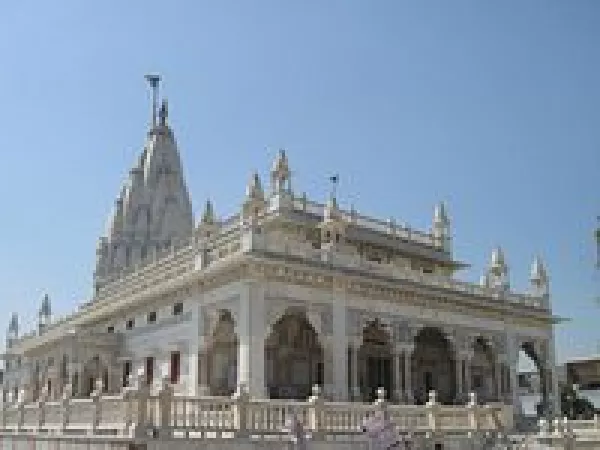 View Gallery - 11
View Gallery - 11 The Marsalganj Jain Temple, located in Firozabad, is dedicated to the Jain deity Parshvanath, serves as an important pilgrimage site for the Jain community, visited by numerous devotees throughout the year.
Another most striking feature of the temple is its architecture. The architecture of the Jain temple at Marsalganj in Firozabad is an example of the Nagara style of temple architecture. The temple has a square vimana, or main tower, with a shikhara, or spire, on top. The temple is richly decorated with carvings of gods and goddesses and with ornate pillars and arches.
Another most striking feature of the temple is its architecture. The architecture of the Jain temple at Marsalganj in Firozabad is an example of the Nagara style of temple architecture. The temple has a square vimana, or main tower, with a shikhara, or spire, on top. The temple is richly decorated with carvings of gods and goddesses and with ornate pillars and arches.
The history of the Marsalganj Jain Temple in Firozabad is associated with the Jain temples in Mathura. The Jain temples in Mathura were built by the Jain merchants who traded in the city. The Marsalganj Jain Temple in Firozabad is said to have been built in the late 18th century by a Jain merchant from Mathura.
Mediate at the Sofi Sahab Mazar
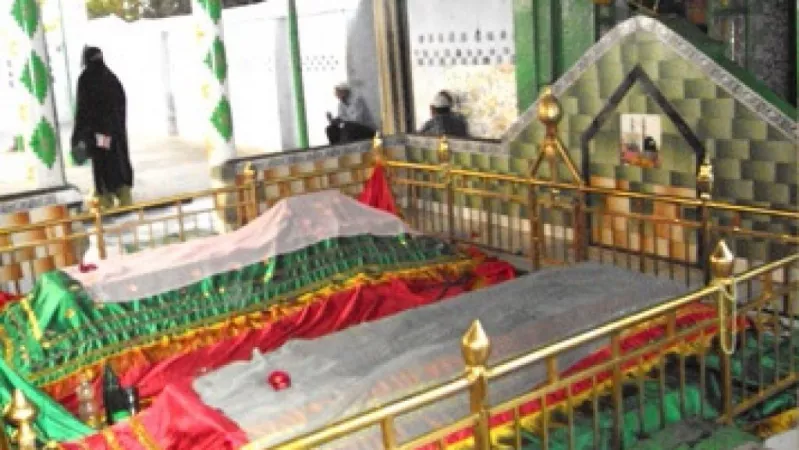 View Gallery - 11
View Gallery - 11 Sofi Sahab Mazar is a well-known historical site in Firozabad dedicated to the memory of Sufi saint Sofi Sahab. The location is about 5 kilometres from Firozabad city and is visited by a large number of devotees from all over the country. The place is situated on the bank of the river Yamuna, and it was believed that the saint used to sit at this place and meditate.
It is a square tomb with a dome in the centre and is constructed in the Mughal style of architecture. The tomb is built of red sandstone and is decorated with intricate carvings. The place is surrounded by a large number of trees and offers a peaceful environment. There is also a small shrine at the place, which also plays an important role.
Pay your homage at the Vaishno Devi Temple
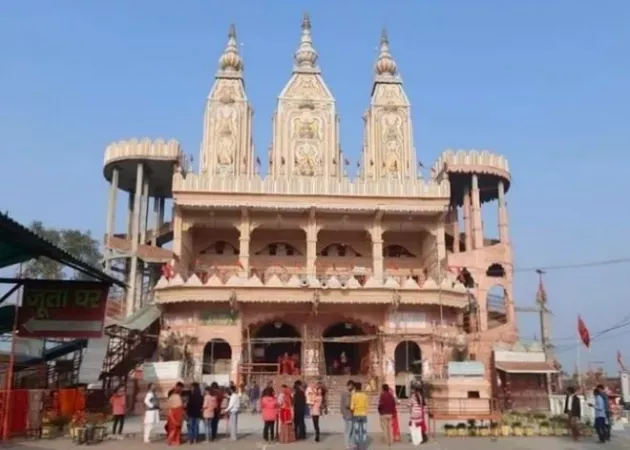 View Gallery - 11
View Gallery - 11 Vaishno Devi Temple is a famous Hindu temple in Firozabad dedicated to the Hindu goddess Vaishno Devi and is one of the most popular pilgrimage destinations in India. The temple is believed to be more than 500 years old. Some also believe that it was built in the late 18th century by the Jat ruler Maharaja Sawai Jai Singh II of Jaipur.
The temple is believed to be the site where the goddess appeared to the Hindu sage Bhrigu. It is also said to be the place where the goddess killed the demon Mahishasura.
The temple is believed to be the site where the goddess appeared to the Hindu sage Bhrigu. It is also said to be the place where the goddess killed the demon Mahishasura.
Speaking of its architecture, the temple is a modern structure built in the style of the temples of the Hindu goddess Vaishno Devi. The temple has a single spire and is surrounded by a large wall. The temple is located in the middle of a large courtyard. The temple is frequented by pilgrims who come to pray for blessings from the goddess.
Have a relaxing evening by the Raja Ka Taal
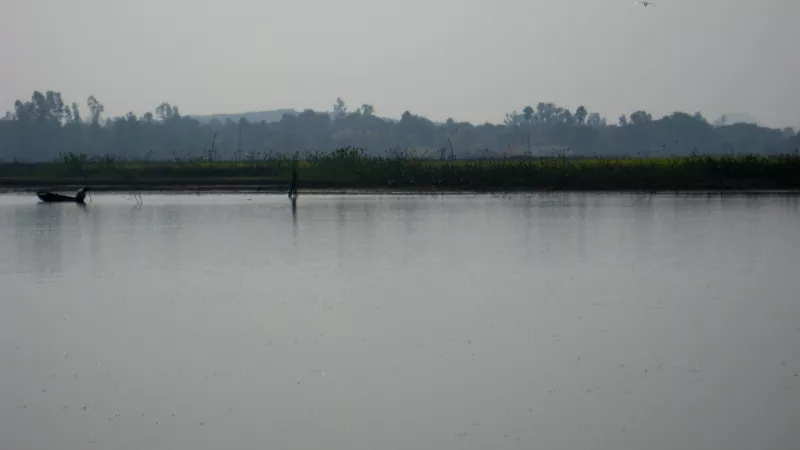 View Gallery - 11
View Gallery - 11 Raja ka Taal is a lake located in Firozabad is an artificial lake which was constructed in the year 1982. The lake is spread over an area of 16.5 square kilometre and is a popular tourist destination in Uttar Pradesh.
The Raja Ka Taal reservoir was constructed by Mughal Emperor Akbar in 1569 with the purpose of supplying water to the city of Firozabad and its adjoining areas. The reservoir is supplied with water from the Ganges River. Today, the Raja Ka Taal reservoir is an important source of water for the people of Firozabad and its adjoining areas. The reservoir supplies water to the city of Firozabad and its adjoining areas, including the districts of Etawah, Mainpuri, and Kannauj. The reservoir is also used for irrigation purposes.
The striking feature is that it is in the form of a fort. The fort has four gates, three bastions, and a moat. Another significant thing to observe is its ambiance. The reservoir is surrounded by a well-developed forest. It is a popular tourist spot and is frequented by people for fishing and boating.
Learn about the Tomb of Firoz Shah
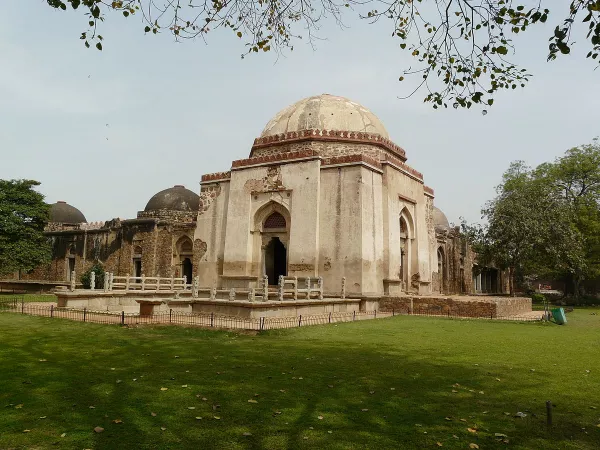 View Gallery - 11
View Gallery - 11 The tomb of Firoz Shah is located in Firozabad, on the outskirts of Delhi. The tomb was originally built in 1354 by Firoz Shah Tughlaq, the Sultan of Delhi, and was later renovated in the late 15th century by Firoz Shah's grandson, Sikandar Shah.
The tomb is an excellent example of Mughal architecture and is decorated with intricate carvings and elaborate stone carvings. It is made of red sandstone and has a pyramidal roof. The tomb is located in the centre of a large quadrangular courtyard, which is surrounded by a high wall. The courtyard is entered through a gateway on the east side. The tomb is flanked by two smaller tombs, which are also made of red sandstone. The tomb is now in a state of disrepair, and much of the stonework has been lost.
Praise the architecture of Shahi Masjid
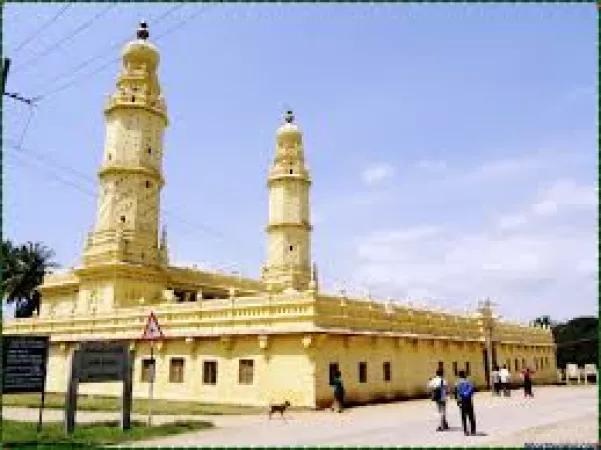 View Gallery - 11
View Gallery - 11 The Shahi Masjid is located in Firozabad and is considered to be one of the most popular tourist destinations in the city. The mosque was commissioned by Mughal Emperor Shah Jahan in 1648 and completed in 1653.
The mosque is noted for its large size and its ornate architecture. It has a magnificent structure with grandiose architecture. The mosque is made of red sandstone and has a large courtyard. The mosque has a large dome and minarets that are intricately carved. The mosque is a beautiful example of Mughal architecture.
Witness the famous Firozabad Fort
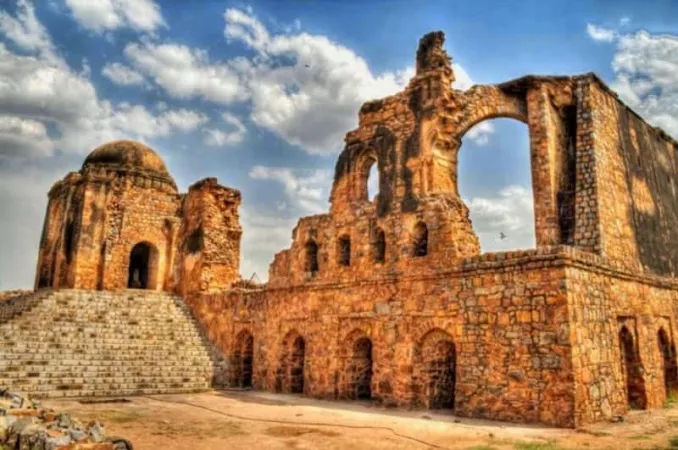 View Gallery - 11
View Gallery - 11 The Firozabad Fort is located in Firozabad, located on the banks of the Yamuna River. It is a large fort that was built by Firoz Shah Tughlaq in the 14th century. The architecture of Firozabad Fort reflects Islamic Mughal architecture. The fort is rectangular in shape and has a gateway in the middle. There are two bastions on either side of the gateway. The fort has a mosque, a bath, and a palace. The mosque has a domed roof and minarets. The palace has a domed roof and arched windows. The fort is now in ruins, but it is still an impressive sight.
Learn about the history of Kotla Fort
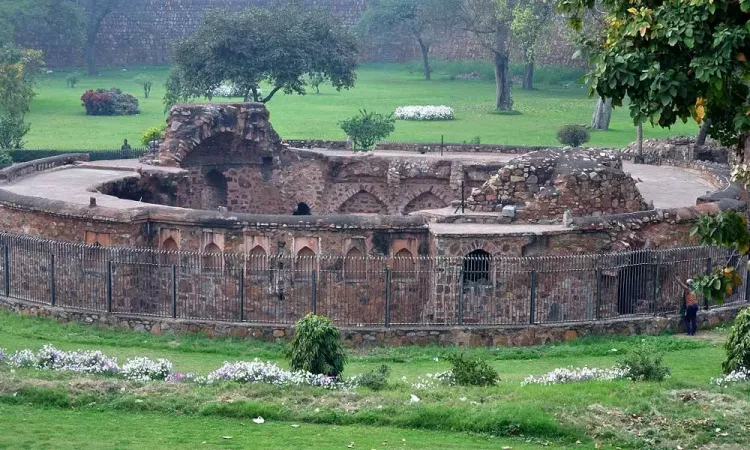 View Gallery - 11
View Gallery - 11 Kotla Fort is an archaeological site located in the Firozabad district of Uttar Pradesh, India. The fort is significant for its historical and archaeological importance. There has been some debate over who commissioned the fort. According to legend, Firoz Shah Tughlaq built the fort in 1354.Other scholars believe that it was built by Raja Kotla in the 9th century AD. While some have the perception that it was built by the Tomar dynasty in the 12th century, Nonetheless the fort was later captured by the Mughal Emperor Akbar in the 16th century. The fort was used by the Mughals as a garrison to protect their eastern frontier and was also used as a prison. The fort was captured by the British in 1803 and then used by the British as a military garrison. Later, it was used by the Indian Army as a military garrison.
The fort is square in shape and is built of red sandstone. The fort has four gateways, three of which are now in ruins. The fort is now in a state of disrepair.

Suchismita Das
Suchismita is a PR Professional since 2018. She have worked in PR with a diverse set of clients.
She has completed her Post Graduation in M.Sc. in Media Science from Maulana Abul Kalam Azad University of Technology (MAKAUT). She completed her graduation in English Honours from Kalyani University.
In her free time, she loves sketching and painting, writing creative pieces, crafting DIY objects and binge watching her favourite shows
Explore best popularTour Packages
Tripclap connects you with top travel agents
Compare Custom Quotes and get the best package deal
1
Trusted Network Of 8000+ Agents.
2
Book everything together, including stay & transport.
3
Compare agent profiles & verified reviews.
How It Works
Compare Custom Quotes from Top Travel Agents.

Tell us about your trip

Get Custom quotes from top agents.

Choose the package you like
Certified
We accept (more)
Members of
Media Recognition
Trusted Partners
Award
Copyrights © TripClap. All Rights Reserved


 June
June July
July August
August September
September October
October November
November December
December January
January February
February March
March April
April May
May

